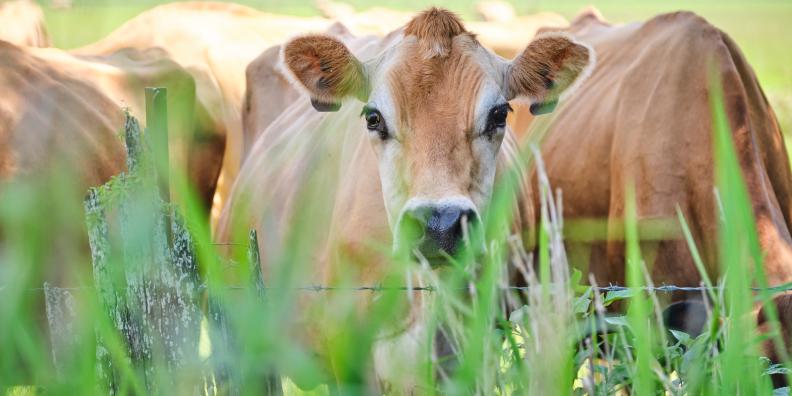

According to the latest research published in Veterinary Parasitology: Regional Studies and Reports in June1, Victorian based researchers have confirmed that indeed they do. Eighteen herds from south-west Victoria were sampled less than a month after calving, and 35% of all cows had a worm egg count greater than 2.5 eggs per gram (epg). Primiparous cows were more likely to have an infection (45%) compared to multiparous cows (26%). Across all herds, the mean of 2.7 epg for multiparous cows and 7.6 epg for primiparous was recorded. But what do these egg counts mean for production and does it justify treatment?
Low faecal egg counts in cattle does not indicate no effects of parasitism as they are an insensitive measure. Not only is the volume of faeces produced a challenge for interpretation, but one of the first stages of the cow’s immune response is to reduce the number of eggs that a worm can produce. This means that cows showing low faecal egg counts can still be carrying a worm burden that is significant enough to impact milk production.
An Australian study consisting of over 2500 cows over nine farms showed an additional 47L of milk was produced over 100 days after treatment with Eprinex®3. In that study, only 41% of treated cattle had a positive egg count prior to treatment.
In a similar New Zealand study where only 25.5% of cows sampled had a positive worm egg count, multiparous cows treated with Eprinex® around calving produced an additional 0.6L per day, whereas primiparous cows, that generally have higher worm egg counts, did not have a milk yield response to treatment4. The study concluded that whole herd treatments were justified around calving.
In multiparous cows, the latest Victorian research showed a relationship between cows with low body condition score (BCS) and egg counts greater than 5 epg. While the study could not differentiate if low BCS increased worm egg count, or high worm egg count lowered BCS, previous work has shown that infected cattle spent less time grazing which resulted in differences in condition score, liveweight and milk yield5. While further work is required to better understand the link between body condition and worm egg count, the results suggest targeting treatment for cows with low body condition should be prioritized.
Those familiar to worm egg counting, especially in sheep, may think that the very low numbers in cattle don’t warrant any treatment. However, lactating cows grazing pasture may produce up to 22.7 kg wet weight of faeces per day, and at 2.5 epg, this roughly equates to 56,000 eggs per day in a single cow's faeces1. In an intensively grazed herd, a high level of contamination could have considerable consequences to the level of parasite challenge on pasture. Cattle grazing pasture with high levels of parasite challenge are at greater risk of infection and require a greater immune response that comes at the expense of production.
A European study that compared the size of the immune response in a population of dairy herds found that the difference between the upper and lower quartiles in daily yield is approximately 1 kg/day2. Allowing pastures to become highly contaminated will lead to increased parasite challenge and subsequent production losses in grazing stock.
With benefits of worm control demonstrated in dairy cows across the majority of studies conducted, the question remains: which treatment should I use? The latest study in Victoria showed that worm infections were dominated by Ostertagia, with other species present being Trichostrongylus, Cooperia and Oesophagostomum. Eprinex® was specifically designed with a focus on a pharmacokinetic profile to minimise milk residues and increase potency against Cooperia. As a result, Eprinex is a highly effective worm treatment for cattle, providing sustained protection against all four species found in the study and with the convenience of a nil milk withhold.
Additionally, Eprinex® has the most scientific evidence supporting productivity responses in dairy cattle from its potent efficacy against worms6. Dairy farmers have trusted the sustained activity of Eprinex® to kill more species of worms for longer than any other pour on. Proven on-farm, where it’s needed. Trust what works!